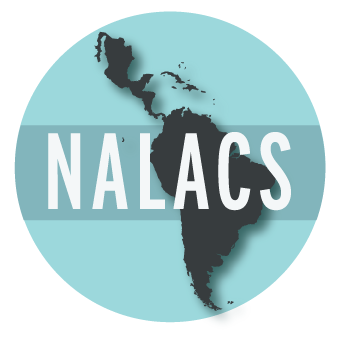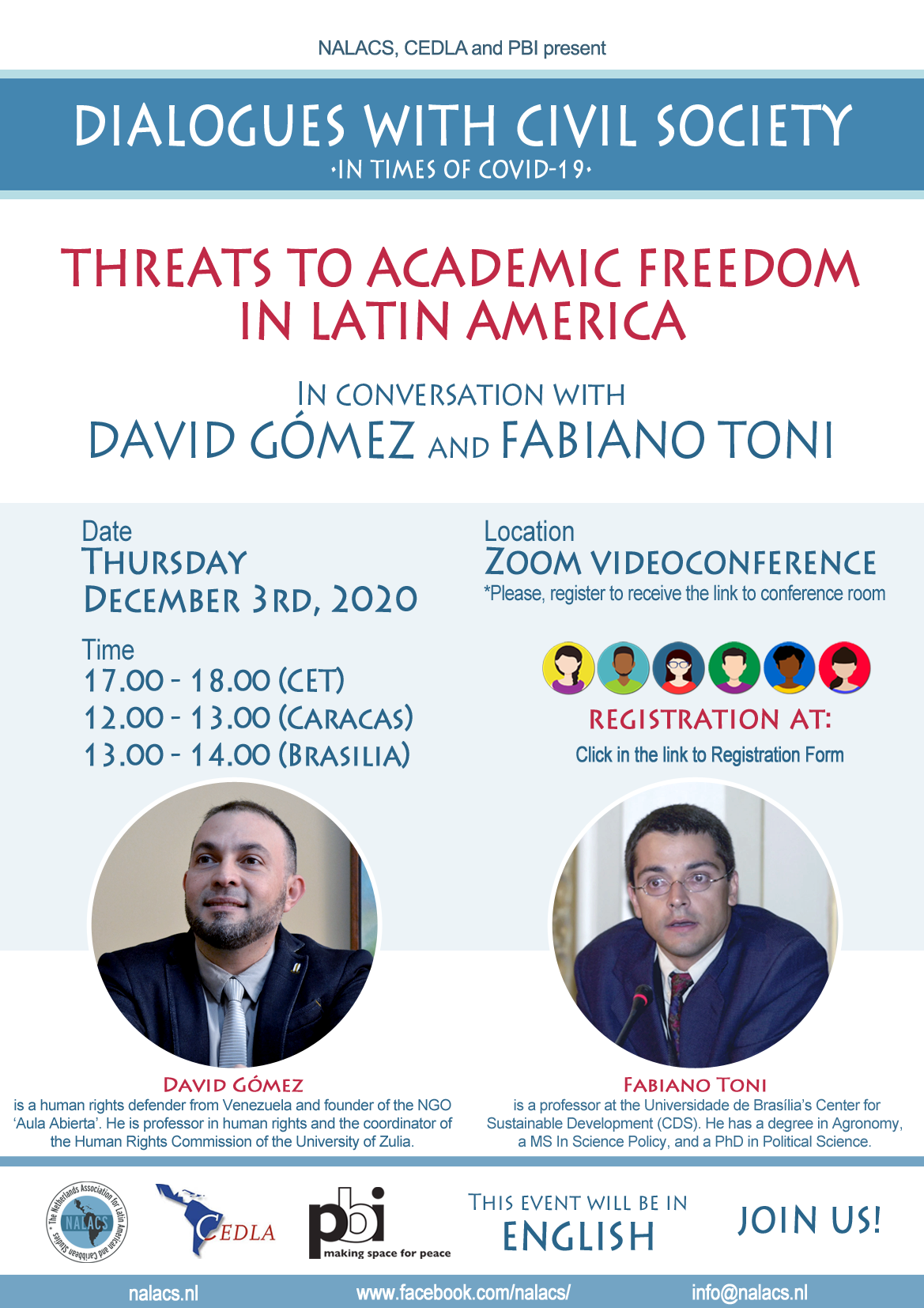Date
December 03, 2020
Category
Past EventsAbout This Project
Threats to Academic Freedom in Latin America
While academic freedom and university autonomy are legally and constitutionally recognized in Latin America, efforts of governments to undermine it have become a major threat to democracy in many countries in the region. Critical views are easily condemned as alleged “plans to destabilize the government”. Autonomous institutions supporting critical views and open debates are subject to persecution and financial restrictions while universities in line with governmental ideology are supported by the government.
What are the consequences when critical thought is being restrained in a particular country? And what will happen if critical academics are forced out of their country? David Gómez and Fabiano Toni share their thoughts as human rights defender and academic researcher, respectively. They will discuss their work in the context of challenges to overcome the threats against academic freedom in the context of old and new authoritarian governments in Latin America.
ABOUT DAVID GÓMEZ
David Gomez is a human rights defender from Venezuela and founder of the NGO ‘Aula Abierta’. He is also professor in human rights and the coordinator of the Human Rights Commission of the University of Zulia. Since 2002 he has developed an international background on human rights research (with NGOs and Universities) and he represents Venezuelan and Latin American civil society before the Inter-American Commission on Human Rights System and some Universal Human Rights System bodies. In February 2019, he participated in the first hearing for The Americas on “restrictions and reprisals against academic freedom and university autonomy”, at the 171st session of the Inter-American Commission on Human Rights (IACHR) held in Bolivia.
ABOUT FABIANO TONI
Fabiano Toni is a professor at the Universidade de Brasília’s Center for Sustainable Development (CDS), where he teaches environmental politics and governance and supervises undergraduate, masters and PhD students. He has a degree in Agronomy, a MS In Science Policy, and a PhD in Political Science. His research focuses on land use; decentralization of environmental policies; the role of social movements in resource allocation; and on adaptation and social vulnerability to climate change. Before joining the University of Brasilia, Fabiano Toni worked as assistant professor at the Universidade Federal do Rio Grande do Norte, and as research associate at the Center for International Forestry Research (CIFOR).
DATE
Thursday, December 3rd, 2020
17.00-18.00 (CET), 12.00-13.00 (Caracas) and 13.00-14.00 (Brasilia)
VENUE
Zoom Meeting – registration via this form
Attendants who register will receive the link to the meeting via email one day before the event.
LANGUAGE
The event will be in English.
REGISTRATION
This event is FREE for all to join, but registration via the form above is required.
Don’t hesitate to contact us via our Facebook page or our email [email protected] in case you have any questions.


